




 |
   |
 |
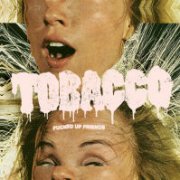 |
Fucked Up Friends (2008, 38.05) **½/TTT½ |
|
| Street Trash Truck Sweat Hairy Candy Hawker Boat Side 8 Yum Yum Cult Berries That Burn Get My Nails Did |
Dirt Gross Magik Little Pink Riding Hood Backwoods Altar Untitled Tape Eater Pink Goo Grease Wizard |
|
Current availability:
Mellotron used:
To be honest, calling yourself 'Tobacco' isn't the best way to make friends with Planet Mellotron... The gentleman of that nom de plume (a.k.a. Tom Fec) is vocalist with/mainman of Black Moth Super Rainbow and his solo project isn't that far removed from their sound, apparently fitting somewhere in between the worlds of techno and hip hop, guaranteeing that I have no idea what he's on about. OK, his sample manipulation and (apparently genuine) analogue synth work on Fucked Up Friends is well done, but I'm afraid it leaves this particular reviewer cold.
Black Moth Super Rainbow apparently own a Novatron, which I presume is what's used extensively here, although the sounds' smoothness makes them sound sampled. Anyway, flutes on most highlighted tracks above (Tobacco's trick is to throw pretty little flute melodies down over crunching synths, providing the bulk of the album's limited melodic input), with strings on Truck Sweat and Gross Magik, all to reasonable effect. Anyway, unless you're into modern, techno-ish electronica, you're not going to like this, so it's probably all a bit irrelevant.
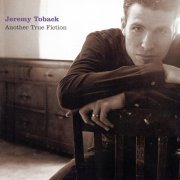 |
Another True Fiction (1999, 42.31) ***/T |
|
| Will I Find You Universe Work Perfect From the Start You Make Me Feel Another True Fiction Come Around Green Light Revelation |
Through to Me Heaven Inside Day Will Rise |
|
Current availability:
Chamberlin(s) used:
Jeremy Toback (ex-Pearl Jam/Satchel side-project Brad) released his second solo album, Another True Fiction, in 1999, a collection of songs straddling the powerpop and mainstream pop/rock divide (not a vast structure, admittedly), at its best on opener Will I Find You, Come Around and the lethargic Heaven Inside.
Patrick Warren and Jebin Bruni are both credited with Chamberlin, with distant strings on Will I Find You and an upfront, pseudo-orchestral strings/cello part on Perfect From The Start, although it's possible there are subliminal parts elsewhere, despite the album's welcome lack of a generic 'keyboards' credit.
 |
The Golden State (2002, 45.58) ***/T |
|
| 88 Ways Digital Independence Day Merry Me Like a Knife Autumn Growing Pains Poppy Fields |
Hijikata Age of Reason |
|
 |
La Ninja: Amor & Other Dreams of Manzanita (2006, 50.58) ***/T |
|
| What if We Do? (Nobody Remix) Amor (Adventure Time Remix) Norwegian Wood My Room is White (Dungen Remix) Muscle, Bone & Blood (AmmonContact Remix) Deep at Sea (Dntel Remix) The Last Night of Winter (Campanella/Hellie Remix) My Room is White (Reminder Remix) |
My Room is White (Flying Lotus Remix) Kokoro Muscle, Bone & Blood (Chessie Remix) Shikibu |
|
Current availability:
Chamberlin/Mellotron used:
After releasing three homespun albums on her own label, Mia Doi Todd re-recorded their best material with producer Mitchell Froom for 2002's The Golden State, making for neither a compilation nor a genuinely new record, at its best on the quietly beautiful Like A Knife, Poppy Fields and six-minute closer Age Of Reason. Froom plays one of his Chamberlin M1s, amongst other devices, with ghostly strings on opener 88 Ways.
Given Todd's propensity for acoustic settings, it's all the more surprising that she consented to a remix album of 2005's Manzanita, La Ninja: Amor & Other Dreams of Manzanita. It's certainly interesting, but just makes me want to hear the original record, to be honest. It features three new Todd tracks, possibly outtakes from the original album, including an excellent (and gender-reassigned) version of The Beatles' Norwegian Wood. The remixes vary in quality and style, as you'd expect, the best possibly being My Room Is White (Dungen Remix); going by the sound of it (dreamy psych), this has to be a group effort by fêted Swedish psychsters Dungen, making a nice change from the usual 'isolate the vocals and stick a crummy dance beat underneath' approach. Robert Campanella (The Quarter After) plays Mellotron on Norwegian Wood, with what sounds like a string section part after the vocals, towards the end of the song.
See: Samples etc. | Dungen
 |
Tamahime-Sama (1984, 29.41) ***/TDoto Ne Ren-AiTeinen Pushiganga Konchugun Yuumon no Giga Tonari no Indojin Tamahime Sama Mori no Hitobito Odorenai Musi no Onna |
Current availability:
Mellotron used:
In many ways, Jun Togawa's a fairly typical Japanese starlet, getting her first break as part of the creepy (to Western sensibilities) idol phenomenon, although, in fairness, I'm not sure how much it differs from the West's preoccupation with appearance (particularly of young women) over talent. As with so many Japanese artists, hard and fast info is hard to find, but 1984's Tamahime-Sama appears to be her first album, heavy with Japanese folk and 'new wave' influences, rather than the light, fluffy pop I'd expected, which is quite welcome. Actually, some of this is decidedly weird, not least Togawa's twisted, little-girl vocals (particularly on Yuumon No Giga) and some of the synth arrangements, making it a far better proposition than it might've been.
Hajime Okano plays Mellotron, with choppy flutes and cellos on Teinen Pushiganga and what I take to be a brief string part on Yuumon No Giga, although the muted choir on Konchugun sounds like an early sampler (an original Emulator?). So; interestingly odd, although not exactly something I can see myself listening to on a regular basis. Not much Mellotron, but plenty of unusual synth use, for those into the sounds of the era.
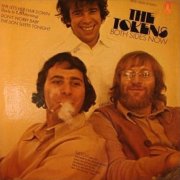 |
Both Sides Now (1970, 29.46) **½/T½ |
|
| Both Sides Now Brandywine Green Tambourine Beautiful People She Let's Her Hair Down (Early in the Morning) Don't Worry Baby The Lion Sleeps Tonight (Wimoweh) Tonight I Fell in Love |
I Hear Trumpets Blow He's in Town If I Were a Carpenter Some People Sleep |
|
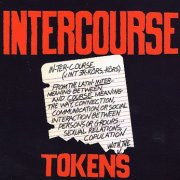 |
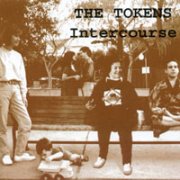 |
Intercourse (1972, 25.01) **½/TT |
|
| It's Amazing to Be Alive Droplets of Water Bathroom Wall Animal Greenfields Wonderful Things Commercial Gray is Gray |
Waiting for Something I Could Be Girl on 6 I Want to Make Love to You In and Out Stereo You Loser You Fool Some People Sleep |
||
Current availability:
Mellotrons used:
By 1970, The Tokens were known as one-hit wonders, for The Lion Sleeps Tonight (Wimoweh), a position they hold to this day. Already seen as has-beens, they clearly felt they had nothing to lose with that year's Both Sides Now, a strange mix of then-current folk-rock and their doo-wop roots. Material like Brandywine, The Lemon Pipers' Green Tambourine and If I Were A Carpenter (easily the album's best track) rub shoulders uncomfortably with a remake of The Lion Sleeps Tonight and I Hear Trumpets Blow, making for an album that is neither one thing nor the other. An unknown musician plays Mellotron strings on If I Were A Carpenter and closer Some People Sleep, surprisingly, since most of the album's strings are real. An attempt to appear 'hip'? Unknown, but it provides a bit of welcome light relief.
The following year, they presented Warners with the provocatively-titled Intercourse, only to see it rejected by the company. Undeterred, they released it in a limited edition themselves, although hearing it nearly forty years later makes you wonder a) what all the fuss was about and b) whether it was all worth it. It's actually more dated than its predecessor in some ways; the brief skits between tracks are very topically Firesign Theatre-ish, although combining them with their patented doo-wop vocals really doesn't work very well. Somebody, possibly band member Mitch Margo, plays Mellotron this time round, with strings on Animal, flutes and strings on Waiting For Something and more strings on a repeat of the previous album's Some People Sleep to finish things off nicely, although it hardly makes the album any more worth the effort.
So; four decent Mellotron tracks over two short and not very interesting albums. I could hardly recommend that you spend hard cash on these, but the tracks in question are worth hearing.
See: Night Time Music
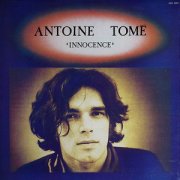 |
«Innocence» (1979, 34.21) ***/TInnocenceDanse de Printemps Une Négresse Rentre du Marché Le Vent Tourne, Tourne en Rond (dans le Puits Sans Fond des Jours) Chanson pour les Vignes Mokeha Gitana Soleil |
Current availability:
Mellotron used:
Later in life, Antoine Tomé has become known as an actor (The Hobbit, others) and a French-language voiceover artist on, quite literally, hundreds of films, conducting a musical career throughout. 1979's «Innocence» was his second album, its contents largely folky chanson with a medieval feel, for want of a better description, possibly at their best on the opening title track, Le Vent Tourne, Tourne En Rond and Gitana.
Tomé plays Mellotron, with a skronky flute arrangement on closer Soleil, slightly unlike any Mellotron use you may've heard before. Like most of his catalogue, this has never been reissued, but is worth hearing on YouTube, whether or not you understand the language.
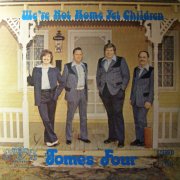 |
We're Not Home Yet Children [Tomes Four] (197?, 31.21) *½/TT |
|
| I Hold a Clear Title to a Mansion What a Lovely Name He's Not a Stranger to Me One Day I Will Hallelujah Square Ready to Leave We're Not Home Yet Children Why He Loves Me (I Can't Understand) |
Glory Road One Day at a Time What a Beautiful Day (for the Lord to Come Again) |
|
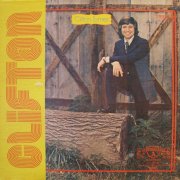 |
Clifton [Clifton Tomes] (197?, 27.32) */TT½ |
|
| I'll Ride on the Clouds Sailing on Life's Sea Sail Away There's Nothing My God Can't Do Coming for Me The Eyes of Jesus Troubles Will Soon Be O'er My God is Big Enough |
Holy Manna Let Me Walk With You Jesus |
|
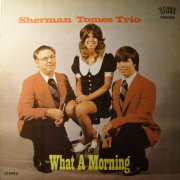 |
What a Morning [Sherman Tomes Trio] (197?, 30.28) */T½ |
|
| I've Found a New Way He's More Than Just a Swear Word Precious Jesus Don't Forget When God Passes Judgement Why Me Lord What a Morning Wonderful is Jesus Beyond Tomorrow |
Never Failing God Lay My Burden Down |
|
Current availability:
Mellotrons used:
Although all three of these albums were released under different names, I'll break a self-imposed rule and treat them as three facets of the same stone. Or something. They're all pretty much equally awful, if that counts for anything.
While the rear sleeve to the Tomes Four's (typically) undated We're Not Home Yet Children credits its instrumentalists, it strangely omits to name the vocal front-line, the only obvious member (also pianist) being Clifton Tomes. Are they all members of the Tomes clan? Just some? Only Clifton? Presumably, as group leader, he gets to wear the non-matching jacket; my guess is his second-in-command is the big guy, second right in the sleeve pic, who gets away with not having to wear the full suit. Musically, this falls into the 'Christian country' camp, which is, strangely, actually less offensive than the likes of Judy Donaldson's hideously schlocky gospel-free gospel. That isn't, of course, to say that this is any good; it isn't. If there's a highlight, it's on the lyric front. Try this, from Hallelujah Square:
| I saw a cripple, dragging (?) his feet, He couldn't walk like we do down the street, (!!) I said, "My friend, I feel sorry for you", But he said, "Up in heaven, I'm gonna walk just like you". |
Um... What can I say? This is wrong on so many levels, even by '70s standards (poor, in case you've forgotten). Talk about offensive... And is the unknown lead (Clifton himself?) singing 'dragging', 'ragging' (?) or even, wonderfully, 'wagging'? We can only hope for the last-named. Jay Petach (Gospel, Regals) plays Mellotron, with strings on Hallelujah Square, Why He Loves Me (I Can't Understand) and old standard One Day At A Time, plus cellos on the first-named, entirely failing to enhance a tedious, yet thankfully relatively musical performance. If there's a musical highlight, it's Bud Gregory's better-than competent steel guitar; seriously, it makes a change in this foul genre to hear four actual singers and a band who can play.
Clifton Tomes sticks to his quartet's 'Christian country' formula on the undated Clifton, released just before the group LP, going by their catalogue numbers. To be honest, there's little to choose between the albums; Tomes is backed by two or three other male voices here, possibly the other members of the Four, while the music's effectively identical, ditto the songwriting. I believe the usual term is 'generic'. Only one side-splitting title this time round: My God Is Big Enough. Fnar fnar, etc. Once again, Jay Petach plays studio Mellotron, with strings on Sailing On Life's Sea, There's Nothing My God Can't Do, The Eyes Of Jesus and My God Is Big Enough, plus cellos on the first-named. Er, what else is there to say? Tiresome Xian country, some Mellotron.
I can't quite decide whether or not the Sherman Tomes Trio's What a Morning is the worst of this triumvirate or not. Actually, thinking about it, it is. Because? Because Sherman (I presume) can't fucking sing. OK, his voice lacks that harsh, grating quality and complete disregard for equal temperament that distinguishes the true amateur from the merely incompetent, but he sings flat, quite consistently. Worst example? Appropriately enough, Why Me Lord. I agree! Why me? Why me, for fuck's sake? Why am I sitting here listening to this shit? Anyway, Beyond Tomorrow runs it a close second, while (unsurprisingly) several of the harmony parts are somewhat teeth-grating. Not in the same league as Why Me Lord, though. PAIN! PAIN! A shame, as the female component of the trio, one Brenda Vaughn (pretty name), actually has a very decent voice, in a musical-theatre kind of way, while Darrell Tomes (Sherman's son, by the looks of it) is, at least, inoffensive. So, did nobody feel they could tell père Tomes that he couldn't carry a tune in a bucket? Obviously not. Mel Pierce does the Mellotronic honours this time round (Petach engineers again), with background strings on the title track and Beyond Tomorrow and more upfront ones on closer Lay My Burden Down, a track vastly improved by Brenda's solo lead. Yes, solo. Incidentally, I love Pierce's sitar interjections on the first couple of tracks; an attempt to appear 'contemporary'? Fail.
The chances of you actually randomly running across any of this crap are minuscule, but just in case you stumble across any of them in a Kentucky-area thrift store, don't forget: Just. Say. No.
Tomita (Japan) see: |
 |
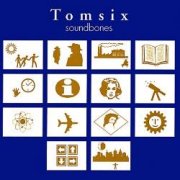 |
Soundbones (1995, recorded 1974-79, 69.20) ****/T |
|
| Intro/On the Playground Missing Persons No Such Thing Dimension of Now One More Time Identity 217 Not Knowing You Lookin' for a Little Light |
Sound on the Move London What You Say When it Happens Time Like This Metropolitan Claim |
|
Current availability:
Mellotron used:
It seems possible that Tomsix (a play on the band's three Tomsick brothers' name) never actually played under that name at the time, starting as Tarsier before moving on to become Missing Persons, years before their better-known namesakes. 1995's Soundbones is a compilation of what I presume the band members regard as the cream of the fifty-odd tracks they recorded in demo studios in the Cleveland area throughout the '70s, an intriguing combination of Gentle Giant and the quirkier end of slightly more mainstream pop/rock, becoming more 'new wave'-influenced as the disc (presumably sequenced chronologically) progresses. Specifics? I hear traces of The Beach Boys on some of their earlier material, while I'd be surprised if they hadn't heard a new Canadian outfit, Saga, by their '79 recordings. Or perhaps they were both listening to the same bands?
Stylistically, a favourite trick of guitarists John and Ken Tomsick was to play counterpoints on clean guitars, forming intricately weaving lines in a manner that Gentle Giant might have attempted had they been in possession of two guitarists, almost sounding like forerunners of New Yorkers Television in places. Highlights include Dimension Of Now (the longest thing here, at six minutes), the sax-driven Identity 217, the cheesy-yet-compelling London and What You Say, while nothing (even the faux-disco of Lookin' For A Little Light) manages to truly offend.
Either John or Ken (both guitarists/keyboard players) play the Mellotron on their first recording, Dimension Of Now (presumably a studio machine), with a string part drifting in and out that nicely enhances the Gentle Giant-ish piece, although that would seem to be our lot. I believe this was only ever available in a limited edition nearly twenty years ago, although I suspect there's an officially downloadable version around. Either way, definitely worth hearing for fans of obscure US prog, although probably less so for the Mellotron.
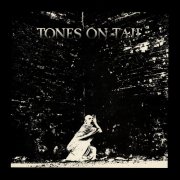 |
Burning Skies (1983, 20.20) ***/TBurning SkiesOK, This is the Pops When You're Smiling You, the Night and the Music |
Current availability:
Mellotron used:
Tones on Tail were Daniel Ash's Bauhaus side-project, sounding like a more ambient version of the parent band, going by 1983's Burning Skies EP, released prior to their debut full-lengther. The opening title track is the closest this gets to Bauhaus themselves, with that 'flanged lead bass' thing that goth did so well. OK, This Is The Pops is similar, yet probably a better choice as lead-off track, the other two being more 'b-side of EP' fodder.
Bassist Glenn Campling plays Mellotron on You, The Night And The Music, with atonal choirs throughout, switching across 'on the fly' to and from strings near the end, just in case we weren't sure it was genuine. To my knowledge, that's it for ToT Mellotron, but I'll come back if I hear any more on the appropriately-titled Everything!
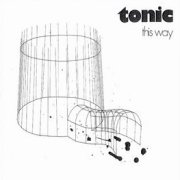 |
This Way (1981, 42.31) ***½/TTOnce I Had a Dream (Parts 1 & 2)Ask Me No More Black Boy Sometimes This Way Against the Fear of Death |
Current availability:
Mellotron used:
Tonic's This Way was a rather late entrant into the German progressive scene, along with Tau's self-titled effort from the same year and maybe a handful of others. It actually covers several bases, including hard rock, folk, blues and jazz, along with material considered more traditionally 'progressive', but the overall feel is of a band willing to reach beyond the mainstream, which is good enough for me. Saying that, I could well have done without the rather dull and jazzy Black Boy, although the first two tracks are very much worth hearing.
Uwe Murschel's Mellotron use is pretty minimal until the last two tracks, to be honest: you have to wait until a good nine minutes into Ask Me No More for the Mellotron choirs to finally appear, only for them to disappear just as suddenly after two runs through a few-second sequence. On the second half of side two you finally get some serious Mellotron action, with a brief string part on the title track followed by choirs, then a full-on string'n'choir bonanza on closer Against The Fear Of Death, grasping victory from the jaws of Mellotronic defeat.
So; this is probably fairly hard to find and doesn't appear to be on CD and is only really average musically speaking. Decent Mellotron on the last two tracks, but not what you'd call a Mellotron classic.
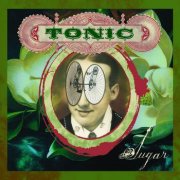 |
Sugar (1999, 50.03) **½/T |
|
| Future Says Run You Wanted More Knock Down Walls Mean to Me Sugar Stronger Than Mine Queen Waiting for the Light to Change |
Waltz with Me Sunflower Drag Me Down Top Falls Down Love a Diamond |
|
Current availability:
Mellotron used:
Tonic were a johnny-come-lately grunge outfit, forming in 1993, finding success with their debut album, 1996's Lemon Parade. 1999's Sugar was their third effort, still making the US charts, albeit rather lower down. By and large, I'm afraid it's a bit of a dullard of an album, with only Top Falls Down featuring any attempt to write something more than a bland pop/rock song.
Jeff Russo plays Mellotron strings on Love A Diamond, plus cellos, by the sound of it, but it would be a misnomer to say that it seriously enhances a rather dull ballad. Overall, then, a bland, mainstream album with one Mellotron track. You know what to do. Or not.
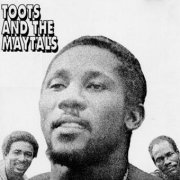 |
In the Dark (1973, 39.45) **½/T½ |
|
| Got to Be There In the Dark Having a Party Time Tough I See You Take a Look in the Mirror Take Me Home, Country Roads Fever |
Love Gonna Walk Out on Me Revolution 54-36 Was My Number Sailing on |
|
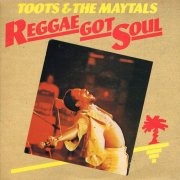 |
Reggae Got Soul (1976, 35.08/74.16) ***/0 (T) |
||
| Rasta Man Premature So Bad Six and Seven Books I Shall Sing Reggae Got Soul Everybody Needs Lovin' Living in the Ghetto |
True Love is Hard to Find Never You Change [Expanded CD adds: Dog War Rhythm Down Low (orig. version) Missing You (Original Version) So You Say Treat Me Bad |
Every Day and Every Night Acting So Funny Two Different Styles Rhythm Premature Dub True Love is Hard to Find Dub] |
|
Current availability:
Mellotrons used:
Frederick "Toots" Hibbert was the first artist to use the term 'reggae', admittedly spelled 'reggay', giving him an immediate place in the genre's history. Going by his second international release, 1973's In the Dark, Toots & Co. were at the poppier end of the spectrum, although it's easy to forget that most reggae was lightweight and dance-orientated, Bob Marley's on/off rebel/rabble-rousing style being fairly uncharacteristic within the field. Nothing here particularly stands out, to be honest, although their version of John Denver's Take Me Home, Country Roads (substituting 'West Jamaica' for 'West Virginia') is at least recognisable. An unknown session player adds Mellotron to a few tracks, with (very) background strings on Take Me Home, Country Roads, upfront ones, plus cellos on Love Gonna Walk Out On Me, flutes on Revolution and faint cellos on his remake of his own 54-36 Was My Number.
1976's Reggae Got Soul is probably a more mature album, although its contents remain relatively lightweight. There's no Mellotron on the original, ten-track release, but its 2015 expanded edition features someone (several musicians are credited with organ on the original, although it could be someone else entirely) playing Mellotron strings on So You Say.
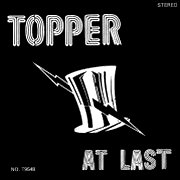 |
At Last (1977, 34.19) ***/TAstral PlaneSay What You Feel Smile for the Clown Phaze 1 (Prelude) Phaze 2 Devil's Rx Hells Fire |
Current availability:
Mellotron used:
It's difficult to know what to say about an album like Topper's lone (?) release, At Last, It's a bit proggy, a bit hard rock, a bit boogie... Seems like they were trying to be all things to all men, with the predictable end result that they produced a rather average album with few real high points. It seems it was recorded at vocalist Jimmy Hodges' nightclub in the Kansas area; it starts well enough, opener Astral Plane being one of the better tracks, but by Devil's Rx it's sunk into a tedious rock'n'roll pastiche (despite a guitar track apparently being left out of the mix), rather giving the impression the band weren't ready to record quite yet.
Keys man Rudy Paissano plays the usual 'boards, including a string synth on a couple of tracks and some slightly wobbly Moog in places. Smile For The Clown is the album's only Mellotron track (suspect studio machine), although it rather unfortunately rips off Stairway To Heaven something rotten. I mean, of all the songs... Anyway, strings and flutes throughout most of the track, with Paissano switching sounds 'on the fly'. I believe this is available on Japanese (legit?) reissue label Never Land, but I wouldn't go too far out of your way for it. Comparable to, say, Strongbow, but probably less interesting. Average. n.b. Many thanks to Hodges' son Jimmy Hodges III for extra info.
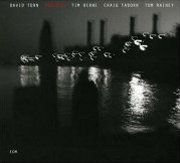 |
Prezens (2007, 72.38) ***/T |
|
| AK Rest and Unrest Structural Functions of Prezens Bulbs Them Buried Standing Sink Neck Deep in the Harrow |
Ever More Other Ring for Endless Travel Miss Place the Mist Transmit Regardless |
|
Current availability:
Mellotron used:
David Torn is a noted American jazz guitarist, of the 'not afraid to experiment' variety, to the point where much of his work is probably not considered 'jazz' at all by purists. Like many (most?) jazz musicians, his discography is complex, as he's played with many different bands, plus collaborations, albums as bandleader etc. 2007's Prezens credits the other musicians on the sleeve, after Torn's name and the album title, but is clearly his project, led by his vision(s) of how the music should progress, including laptop glitches (not a pleasant sound, frankly) and more guitar tones than you can shake a stick at. My chief criticism of the album is its overall length, not to mention that of several of the longer tracks, which tend to drift off into aimless noodling.
Craig Taborn adds some long, reverbed (real?) Mellotron flute notes to Structural Functions Of Prezens, key-click present (prezens?) and correct but, despite various string sounds cropping up here and there, that would appear to be it. So; a forward-looking jazz guitar album, not for everyone, but definitely for someone. Not for Mellotron enthusiasts, though.
See: Craig Taborn
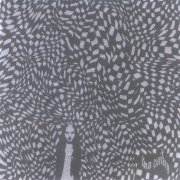 |
Torn Curtain (1996, 37.10) ****/TTTTDaymareCreatures Twilite Dawn |
Current availability:
Mellotron used:
Another of the Ventricle Records stable of darkwave acts, Torn Curtain bear more than a passing resemblance to Angel Provocateur, with drifting, ethereal, mostly wordless female vocals, with the only credited instruments being 'voice, Mellotron, effects and feedback'. Dusty Lee certainly knows how to get the best from his machine, utilising its gothic inclinations to the full, as with the other bands in the collective.
The only track that doesn't feature the Mellotron as pretty much the lead instrument is Creatures, with just a few flute chords, but the other three tracks have shedloads of almost atonal strings, though, unlike Mauve Sideshow, in a very listenable kind of way. Some of the string parts are so high in the mix they almost distort, so if you like it loud... No particular highlights, but Daymare, Creatures and Dawn are unlikely to disappoint on the Mellotron front. Recommended.
See: Angel Provocateur | Kangaroo Kourt | Mauve Sideshow | Steeple of Fyre
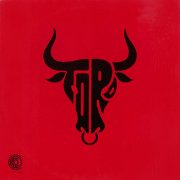 |
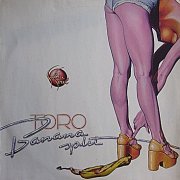 |
Toro [a.k.a. Banana Split] (1975, 38.58) ***½/TRamonaSmall Folk Reservation Fields of Laughter Falling in Love Like the Sun (N.Y.C.) Michaela Cabo Rojo Nena Going to Borinquen |
Current availability:
Mellotron used:
I'm having trouble finding much useful information regarding New York (?)-based Latin outfit Toro; I'd imagine their difficult-to-search-for name isn't helping. What I believe is their sole album, 1975's Toro (reissued as Banana Split, with a really shit sleeve), is a decent slice of Santana-esque Latin rock/soul/funk, highlights including opener Ramona, Fields Of Laughter and Going To Borinquen, although the top marks are reserved for the quite excellent Like The Sun (N.Y.C.), replete with ripping guitar solo from Steve Napoleoni Monge.
Keys man Larry Harlow plays Mellotron, along with the more usual 'boards, with exceedingly background strings on Ramona and far more upfront polyphonic flute and string parts on Like The Sun (N.Y.C.). To my knowledge, there were loads of bands around this time making this kind of music, but few (OK, none) managed to break out from their purely local fanbases; Toro is worth seeking out if you have any interest in this area. I once passed on a copy of this for a few quid, as it was more than I was prepared to pay for an unknown quantity; I still slightly regret doing so, but at least I've finally got to hear this rarity.
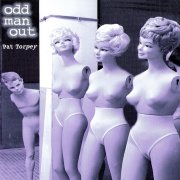 |
Odd Man Out (1998, 40.50) ***/TT |
|
| Jack the One Eyed Jill Spit it Out I Really Don't Mind Dumb it Down Lemoncello Crazy Thing The Rapture Epitaph |
Buildings Joystick Peeping Tom Tom Hangover |
|
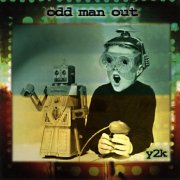 |
Y2K [as Odd Man Out] (1999, 39.42) ***/TT |
|
| Falling Off the Sun Low Bottom Savior Man on the Ground On a Bender Hell on Highwater's Son QP Doll The River Circus of Circumstance |
Dilemma Ain't That a Shame |
|
Current availability:
Chamberlins/Mellotron used:
Pat Torpey (1953-2018) was best known as drummer with Mr Big, working alongside stunt bassist and guitarist Billy Sheehan and Paul Gilbert and vocalist Eric Martin, although he's also released several solo efforts, the first of which is 1998's Odd Man Out. It's a perfectly decent album of mainstream hard-ish rock, although Torpey's at best so-so voice drags some reasonable material down slightly. Nothing here offends, but nor does it particularly inspire, sad to say, although I've heard so much worse. Patrick Warren plays Chamberlin, for the 1001st time, with strings on I Really Don't Mind, Buildings and Hangover (some nice pitchbends on the latter) and strings, flutes and pitchbent male voices on Crazy Thing, although any other string parts are real. Overall, then, probably one for Mr Big fans, the rest of us possibly finding it a bit anodyne, although it's improved by some decent Chamby work.
The following year's Y2K, using the same pool of musicians, was released under the name Odd Man Out, confusingly. It's a rockier proposition all round, at its best on Low Bottom Savior, the jazzy QP Doll and their ripping version of Fats Domino's Ain't That A Shame, almost rivalling Cheap Trick's. Warren's credited with Chamby again, on opener Falling Off The Sun, according to one site, although there's nothing obvious on the track. As a result, I'm making an executive decision to shift his credits elsewhere, with quite audible strings on Low Bottom Savior, more overt flutes and strings on Man On The Ground and pitchbent strings, flutes and the odd vocal stab (also obviously Mellotron, not Chamberlin) on Circus Of Circumstance.
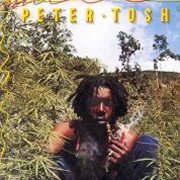 |
Legalize it (1976, 38.33) ***½/TLegalize itBurial What'cha Gonna Do No Sympathy Why Must I Cry Igziabeher (Let Jah Be Praised) Ketchy Shuby Till Your Well Runs Dry Brand New Secondhand |
Current availability:
Mellotron used:
Now, I'd be the first to admit that reggae isn't exactly my Musical Style Of Choice, although as the years go by, I can appreciate classic Bob Marley more than I could at the time. Peter Tosh was, of course, one of the three original Wailers, along with Marley and Bunny Livingston, but left in 1974 along with Livingston, complaining about maltreatment by Marley and Island boss Chris Blackwell. His solo debut, Legalize it, was finally released on Virgin, reggae's other spiritual home in the UK, in 1976, to widespread acclaim, the title track becoming an instant herb anthem. The album is actually pretty varied, given the relatively narrow boundaries reggae sets itself, with several different feels on display across its length and a beautiful guitar solo on Till Your Well Runs Dry, probably from Al Anderson.
Keyboards on the album were played by both Tosh himself and Tyrone Downie (a.k.a. Downey), so there's no way of knowing who plays the 'are they/aren't they' Mellotron strings on Why Must I Cry and the phased, more upfront ones on Igziabeher (Let Jah Be Praised). I doubt whether I'll rush to play this again, but it's a good, varied reggae release that gives the lie to the non-fan's assertion that 'it all sounds the same'. Sadly, Tosh's troubled life ended when he was murdered during a burglary in 1987, leaving Livingston as the only surviving original Wailer.
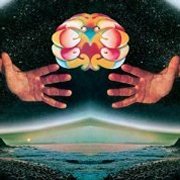 |
Touch (1969, 40.12/79.30) ****/0 (T) |
|
| We Feel Fine Friendly Birds Miss Teach The Spiritual Death of Howard Greer Down at Circe's Place Alesha and Others Seventy Five |
[Eclectic CD adds: We Finally Met Today Alesha and Others Blue Feeling The Spiritual Death of Howard Greer The Second Coming of Suzanne] |
|
Current availability:
Mellotron used:
Touch (not to be confused with the AOR act that metamorphosed from American Tears a decade later, who also released an eponymous debut album), are a serious anomaly in the History Of Prog™. Received wisdom states that it effectively began with King Crimson in 1969, although that version of events ignores several other bands, not least The Nice and early Van der Graaf Generator. It also ignores Touch, a (gasp!) American band, who can't be conveniently slotted into a 'late-period psych' category or somesuch; this lot were, like it or not, proto-prog, with lengthy, complex song structures and a notable classical influence (listen to the massed vocals on The Spiritual Death Of Howard Greer for proof). The album was released on both sides of the Atlantic and has apparently been quoted as an influence by both British and American progressive and associated bands, which rather turns the accepted view of events on its head, doesn't it?
"So where's the Mellotron?" I hear you cry? Well, the short answer is: nowhere. Neither a Mellotron nor a Chamberlin were used in the album's recording, which may leave you wondering exactly why I'm even bothering to write this stuff. Well... The album's first CD issue was on the excellent but short-lived Renaissance label, based in California (who also reissued both Gracious! albums, for what it's worth), which added two bonus tracks to the original running order, Blue Feeling and Alesha And Others (demo version). Another three tracks turned up on a hard-to-find compilation from the label called Buried Treasures, including a much later piece of full-blown prog from 1973, called The Second Coming Of Suzanne, including some Mellotron parts from keys man Don Gallucci (who also produced The Stooges, fact fans). After the label folded, I don't believe the album was sighted again for another decade, until the UK-based Eclectic re-reissued it, with the three Buried Treasures tracks added to the two previously-available bonuses, making Touch a slightly belated Mellotron album, some 35 years after the event. The Second Coming Of Suzanne was apparently written and recorded for a long-forgotten surrealist film, but never used; it doesn't sound especially like soundtrack music, to be honest, although it is instrumental and could easily be edited into shorter sections, I suppse. Gallucci's Mellotron use is limited chiefly to several flute parts, some of which almost fool the ear into believing they're real, although there's also an effective Mellotron strings/guitar duet around the middle of the piece.
So; for those interested in the roots of prog, or for those who simply want to hear a fine, underrated late-'60s album, you really can't go too far wrong with Touch. Those who want a Mellotron Classic can probably look elsewhere, but they'll be missing out. Those who want a lesser-known late-'70s AOR album should probably get the first New England record and avoid the other Touch entirely.
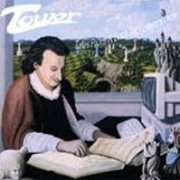 |
Tales From a Book of Yestermorrow (1994, 43.54) ***/TT½There is Music Left to Be...Write!Ann The Box Sailing Too Long For a Moment of Love In My Life Rondò (We Come Back) |
Current availability:
Mellotron used:
Tower are one of several Beppe Crovella (ex-Arti & Mestieri) projects from the early '90s, including Cantina Sociale, Secret Cinema and the ludicrous Romantic Warriors, all released on the now-defunct Italian Vinyl Magic label. This bunch were the trio of Crovella, vocalist Paola Mei and drummer Elio Rivagli, with no guitar or bass and an emphasis on the female English-language vocals. While better than the Romantic Warriors album (not difficult), their sole release, 1994's Tales From a Book of Yestermorrow, bears too many neo-prog hallmarks to be fully palatable, although it probably features as many jazz tropes as neo-prog ones, notably on Crovella's take on Rondo.
Crovella gets some Mellotron strings onto most tracks; I feel much of his use is almost gratuitous, not especially enhancing the music, although In My Life features a particularly nice part, sounding like it's doubling real strings. Overall, then, a passable effort, but some of the keyboard work aside, nothing much to excite the prog fan in search of something new. In fairness, Tales From a Book of Yestermorrow doesn't sound like any other prog album that springs to mind, but that isn't necessarily a recommendation.
See: Beppe Crovella | Arti & Mestieri | Cantina Sociale | Romantic Warriors | Secret Cinema
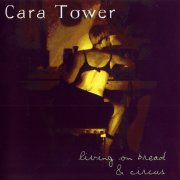 |
Living on Bread & Circus (2001, 45.57) ***/½ |
|
| Raw Dog Summer Always Comes Dear Jane Living on Bread & Circus Infinitely Inseperable No One Suspected Come to Me She Comes From an Ordinary Family |
As Real as the Breath La Pucelle As We Are |
|
Current availability:
Mellotron used:
I can't tell you much about Californian Cara Tower; going by her CD Baby page, she's released three albums, of which 2001's Living on Bread & Circus is the first. It's a quirky, folk-based singer-songwriter thing, probably at its best on its last few tracks, notably the sparse As Real As The Breath, more unusual arrangement decisions including No One Suspected and the fiddle on La Pucelle.
Phil Parlapiano plays his M400, although it's difficult to work out exactly where, as the strings on Dear Jane sound real. The flutes on the title track? They sound more like a synth (several people are credited with such), but I can't imagine where else it might be. Reasonably good at what it does, then, but no Mellotron Album.
 |
Toy Matinee (1990, 45.56) ***/TLast Plane OutTurn it on Salvador Things She Said Remember My Name The Toy Matinee Queen of Misery The Ballad of Jenny Ledge There Was a Little Boy We Always Come Home |
Current availability:
Mellotron used:
Toy Matinee were the duo of Kevin Gilbert and Patrick Leonard, the former being the head honcho of Giraffe (who later played a chunk of Genesis' Lamb at Progfest '94), the latter being a major producer and songwriter, having worked with Madonna, Bryan Ferry etc. and, later, Elton John. The project was actually initiated by Leonard, although it seems to've become known as Gilbert's baby - he claimed to've written most of the material, although the CD insert just says 'all songs by Patrick Leonard and Kevin Gilbert', so who knows? While this is heavily rated by many people, it's all a bit '1990 mainstream' for me, although most tracks have interesting compositional and arrangement ideas; what's the betting I'll love this in two years' time? For the moment, though, despite excellent lyrics (There Was A Little Boy, The Toy Matinee) and great chord changes (nearly everything), it plays it all a bit too safe for my personal tastes.
I was most of the way through the album before I spotted any definite Mellotron use (presumably from Gilbert), with an upfront string part on There Was A Little Boy, at which point I went back to Queen Of Misery to reassess the background strings, but we're not really talking the heaviest Mellotron use ever. However, this was 1990, at which point practically no-one would touch the Mellotron with a bargepole, so any use at all has to be applauded, even when it's this vague.
So; interesting arrangements could make this one a grower, although the hardened proghead will probably find it all a little unpalatable. Not much Mellotron, either, though a veritable feast for the time. Your call. Incidentally, other Kevin Gilbert-related Mellotron albums (definites or possibles) include his 1995 solo effort, Thud, Michael Jackson's Dangerous, Spock's Beard's The Light, Marc Bonilla's EE Ticket and the Yes tribute album, Tales From Yesterday. The only other Gilbert-related albums I've heard even mentioned on the Mellotron front are his own The Shaming of the True (ho ho) and Toy Matinee's Live at the Roxy, though the latter is highly doubtful. Tragically, Gilbert accidentally took his own life on May 17th 1996. R.I.P.
See: Kevin Gilbert